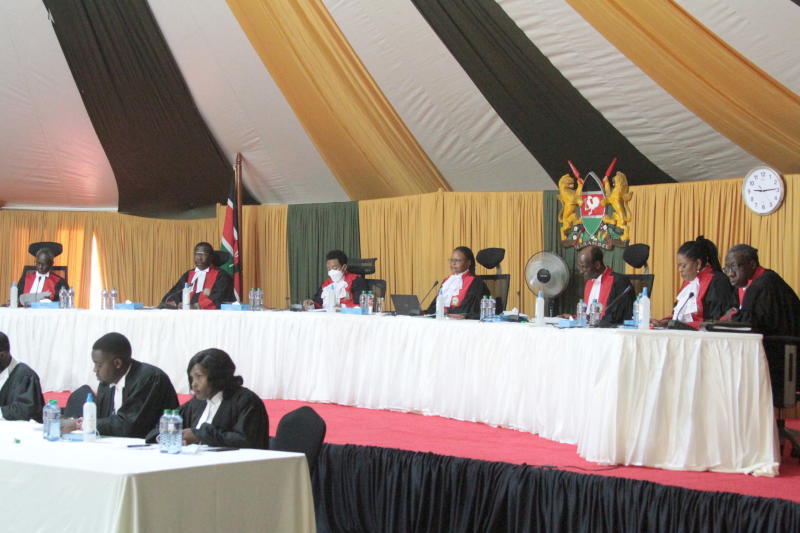×
The Standard e-Paper
Smart Minds Choose Us

Supreme Court judges during the BBI ruling at Supreme Court in Nairobi on Thursday, March 31, 2022. [David Njaaga, Standard]
The Supreme Court BBI decision was the final say on grievances and apprehensions harboured by some Kenyans regarding the very familiar way that the political class had assembled to change the Constitution.